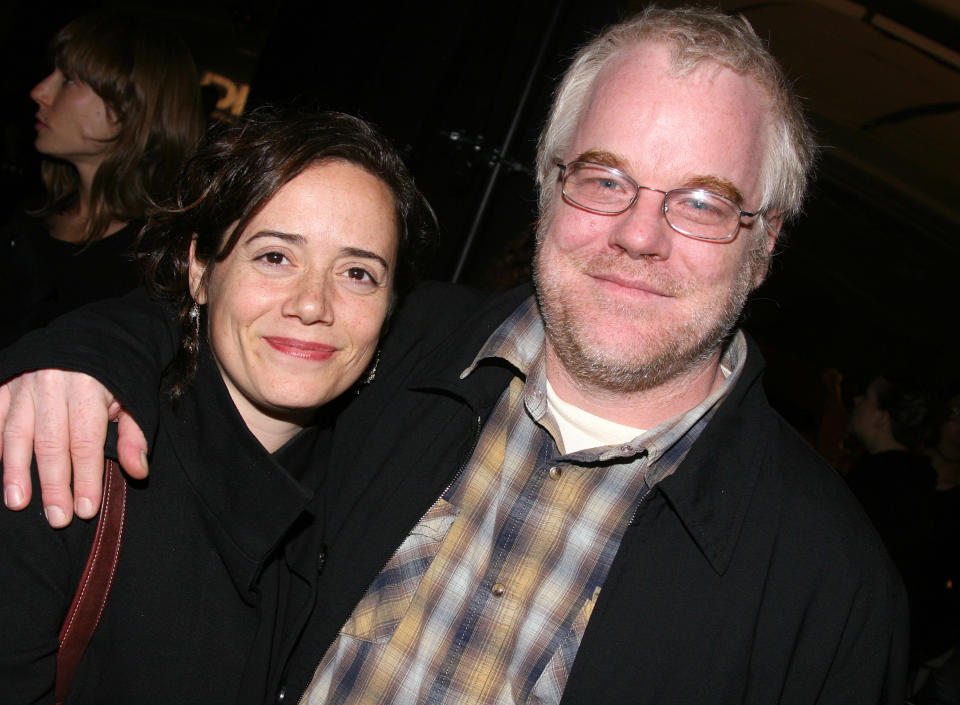Philip Seymour Hoffman's Partner Mimi O'Donnell Details Late Actor's Struggle with Addiction
Philip Seymour Hoffman‘s partner is opening up about the late actor’s struggle with addiction.
In a moving essay for Vogue, Mimi O’Donnell reflects on the loss of her partner and father of three kids — Cooper, 14, Tallulah, 11 and Willa, 9 — from a heroine overdose in early February 2014 at the age of 46. “As soon as Phil started using heroin again, I sensed it, terrified,” O’Donnell writes. “I told him, ‘You’re going to die. That’s what happens with heroin.’ Every day was filled with worry. Every night, when he went out, I wondered: Will I see him again?”

O’Donnell describes how Hoffman slowly started using more and went from prescription pills to heroin — the drug that would eventually kill him. Once he went to rehab and came back acting different, she recalls making the choice with her companion for him to move out of the family home to a nearby apartment in order to not alarm the kids. But when he relapsed again, she says they decided to be honest with their children when they visited him at rehab. “We sat in a common room, and they asked him questions, which he answered with his usual honesty,” she recalls. “He never came out and said, ‘I’m shooting up heroin,’ but he told them enough so that they could get it, and they were just so happy to see him. It was hard when we left, because they all wanted to know why he couldn’t come home with us. But it felt healthy for us to deal with it together, as a family.”
Despite going to rehab, the actor struggled during the last months of his life as he filmed the third Hunger Games installment in Atlanta. O’Donnell remembers feeling like Hoffman was in trouble and feared that he would have a hard road ahead. Her fears were realized when the actor came home from filming. “It happened so quickly. Phil came home from Atlanta, and I called a few people and said that we needed to keep an eye on him. Then he started using again, and three days later he was dead,” she writes. “I had been expecting him to die since the day he started using again, but when it finally happened it hit me with brutal force. I wasn’t prepared. There was no sense of peace or relief, just ferocious pain and overwhelming loss. The most difficult—the impossible—thing was thinking, How do I tell my kids that their dad just died? What are the words?”
Despite the heavy loss the family felt — she writes that the kids became acutely aware she was their only parent and would go into a panic whenever she left the house — O’Donnell says they now are able to look back at their memories with Hoffman with love instead of sadness. “It’s been almost four years since Phil died, and the kids and I are still in a place where that fact is there every day. We talk about him constantly, only now we can talk about him without instantly crying,” she writes. “That’s the small difference, the little bit of progress that we’ve made. We can talk about him in a way that feels as though there’s a remembrance of what happened to him, but that also honors him. We talk about his bad sides and his good sides, what he did that was funny and what he did that was crazy, and what he did that was loving and tender and sweet. We open up, and it brings us together and keeps his spirit alive.”

